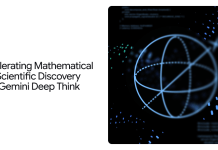Healthcare has just undergone a great digital metamorphosis. In a statement, UPMC has entered into an unprecedented collaboration with Penguin Ai to develop healthcare-focused AI models from patient medical imaging datasets.
As reported IT news in healthcarethe partnership will center around UPMC's Ahavi platform, a secure environment that enables accelerating research and innovation while maintaining patient privacy.
These efforts aim to remove a long-standing bottleneck: Artificial intelligence companies often wait months or even years to access and validate data, according to innovation leader UPMC.
The new alliance aims to reduce this time to weeks, enabling researchers and clinicians to test models more quickly and responsibly.
“We want to create tools that can improve what they do, without overburdening them,” write both teams in an official announcement sharing details of the effort with Penguin Ai.
According to the information disclosed, the collaboration will initially result in three significant applications.
One of them, known as Patient 360, will provide doctors with an integrated view of their patients' histories.
Another will look at simplifying the insurance paperwork process through enhanced prior authorization. The third will seek to identify gaps in care earlier.
The idea is to replace chaos with transparency, which is so lacking in American health care.
Service – mentioned in point a. a broader part of health care system innovation recent company briefing as part of an ongoing effort to make AI development “safer, faster and clinically grounded” – it is also designed to be compliant with standards set by organizations such as Health Level Seven.
Call me a dim-eyed utopian, but this could actually be the kind of collaboration that could move the needle.
Far too often, healthcare AI companies build silos – fancy demonstrations that never make it to the patient's bedside.
Here we have a data powerhouse like UPMC giving Penguin Ai the keys to a platform that already hosts verified, anonymized data.
It's like giving a racing driver a newly paved track instead of a dirt road. There is speed, but also control.
This shot was repeated inat Fierce Healthcarewhere analysts said the deal could mark a “turning point for clinical AI.”
Of course, optimism should not negate caution. When you train on patient data – even non-personally identifiable data – privacy concerns never really go away.
This bias can subtly seep into datasets, and if the model's recommendations are even slightly skewed, this detail can change the outcome.
Here's what UPMC and Penguin Ai will do next – test transparency, model audits, and whether they should or shouldn't allow anyone to see the details of how components work – will be as important as the technology.
But still – I can't help but be impressed by how fast it is. At a time when healthcare systems are buckling under the weight of paperwork and burnout, artificial intelligence that relieves doctors of administrative burdens and frees them to care for patients feels like a life raft.
If this partnership delivers even half of what it promises, it could transform not only workflows but also trust in how AI manifests itself to real people.
The coming months will show whether this experiment will develop into a model that can be repeated throughout the industry.
But for now, at least one thing is clear: health care innovation is becoming less of a buzzword and more of a plan in action.

















